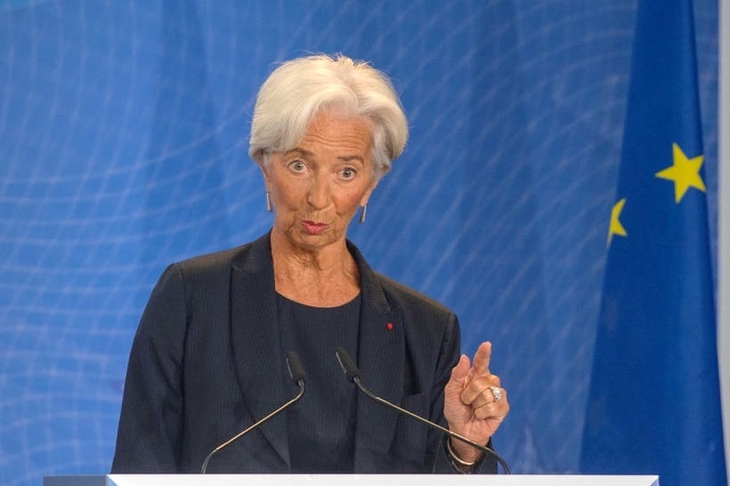As president Sarkozy’s finance minister, Christine Lagarde ran up one of France’s largest ever budget deficits and moved so slowly on reforms it cost him re-election. As managing director of the International Monetary Fund, she collaborated in a ruthless deflation that created the worst recession in recorded history in Greece. She then led the IMF into potentially its worst ever losses with a failed bail-out of Argentina. Wherever Christine Lagarde goes she leaves an economic train wreck behind her.
And now, extraordinarily, she has been put in charge of the most fragile currency in the world. Today, Lagarde moves from the IMF to the presidency of the European Central Bank.
On the surface, that might appear nothing more than switching one technocrat for another. Most central bankers don’t leave much of a mark on the world. Lagarde may well be different however.
While her predecessor, the Italian Mario Draghi, was a brilliant economist who just about kept the euro afloat, Lagarde, an intensely political lawyer, may well be the person who crashes it.
The euro crisis that dominated the first half of this decade might look fixed. We don’t hear much about Greece any more or bond yields in Italy. No one is worrying about the currency breaking up and money is not fleeing the continent.
And yet, under the surface, tensions are as bad as ever. There are huge financial imbalances between the core and the periphery, with money getting recycled through the banking system with the potential for huge losses.
Countries such as Italy are now structurally incapable of growth and the rest of the zone doesn’t look much healthier. Even Germany is now being dragged into recession by a dysfunctional currency. The European Central Bank has already printed two trillion euros and turned interest rates negative but has only managed to produce a tepid recovery that has already run out of steam. It is now cranking up the printing presses again, even though it is running out of assets it can legally buy. It looks more and more like the new Japan, with an economy just about kept alive on newly-minted cash but without the political consensus that just about makes that work.
Sooner or later those tension will burst into the open again. The likely triggers? A final collapse of Deutsche Bank, the most troubled major financial institution in the world, leading to a run on the banking system. A parallel currency in Italy launched by a populist government. Or a bursting credit bubble, possibly in the near bankrupt car industry which finances vast quantities of loans. It is always hard to predict precisely where a crisis will erupt: if it were easy, we’d all be millionaire hedge fund managers. One thing is certain however. When it happens, Lagarde will seek a political consensus, stick to a legalistic interpretation of her options dominated by precedent and convention and crucially fail to get ahead of the curve, calm the markets or solve the real problems.
In truth, her record shows that she can’t see a crisis coming. And when one does break, she sticks rigidly to the rules, much as you would expect for a lawyer. That is likely to be a disaster.
The euro-zone needs a brilliant, creative economist to keep a fundamentally flawed and deflationary currency afloat. The euro might survive Lagarde. Events are always unpredictable and China and the United States might grow fast enough to prevent a crisis erupting during her tenure. But from today the odds of a catastrophic collapse have increased dramatically.






Comments